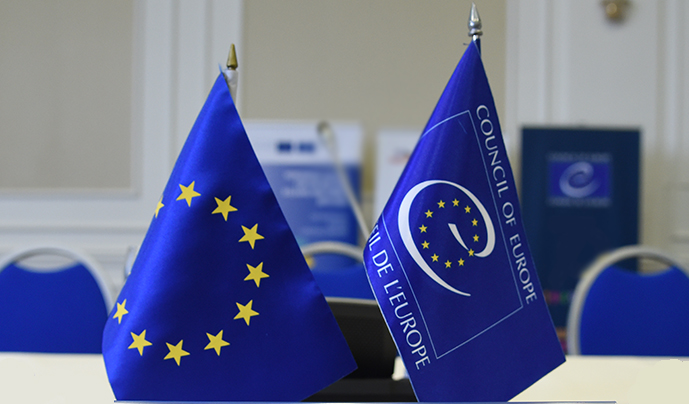
Financial institutions will not be initially subject to EU due diligence directive despite benchmarks showing poor sector performance in addressing risks in supply chain.
The exemption of financial institutions from the EU’s Corporate Sustainability Due Diligence Directive (CSDDD) has heightened concerns about the sector’s ability to address human rights risks.
The decision by the European Council and European Parliament follows reports from the World Benchmarking Alliance (WBA) and Danish Institute for Human Rights (DIHR) which highlighted financial institutions are struggling to “demonstrate respect” for human rights.
CSDDD aims to enhance environmental and human rights protections in the EU and globally. It applies to large companies – with more than 500 employees and a net worldwide turnover of EUR 150 million (USD 164.9 million) – regarding actual and potential adverse impacts across their operations and supply chains.
The financial sector will be temporarily excluded from the full scope of the directive, although there is a review clause for future inclusion. The CSDDD rules are due to come into force in 2027.
Elin Wrzoncki, Department Director, Human Rights, Business and Technology at the DIHR, told ESG Investor the organisation “deplores that the financial sector was excluded at this stage”.
While she acknowledged all large European companies having a duty to conduct human rights due diligence is a significant achievement, she said the financial sector being left out is a “disappointment” though “not really a surprise”.
“It does miss out on human rights, there’s no doubt about that,” Richard Gardiner, the WBA’s EU Public Policy Lead, said.
“This could have been a real game changer,” he added. “There was a lot of appetite out there to do this [and] they’ve missed a big opportunity”.
The exclusion of due diligence rules for financial institutions on their clients’ activities means they will initially only have to check whether there are human rights and environmental harms in their own operations.
Uku Lilleväli, Sustainable Finance Policy Officer at WWF European Policy Office, was even more critical, branding the deal an “insult” to people and communities “suffering from the severe harms that EU financiers are contributing to globally”, adding the negotiators had agreed financiers “must be allowed to freely violate human rights.”
Gardiner noted a “growing case” of significant financial risks facing financial institutions that fail to address human rights risks in their operations, while Wrzoncki said investors have started taking the responsibility of addressing human rights “quite seriously”.
The deal needs to be endorsed and formally adopted by both EU institutions. A vote on the text is set to take place early in 2024.
CSDDD will also apply to non-EU companies with more than EUR 300 million in net turnover generated in the EU three years from entry into force of the directive. The Commission will publish a list of non-EU companies that fall under its scope.
Poor sector performance
The WBA and DIHR benchmark reports found an underlying discrepancy between increasing awareness and understanding of ESG risks in the financial sector and those institutions’ documented policies and practices in relation to human rights.
The WBA’s first Financial System Benchmark found that only 12% of the 400 assessed financial institutions undertake sufficient human rights due diligence in either identifying human rights risks in operations and financing activities, assessing human rights risks, or taking appropriate action.
Less than 10% of institutions disclosed the processes in place to identify human rights risks and impacts within their own operations. While noting this is the benchmark’s first iteration, Gardiner said it had “laid a fairly low bar to overcome on human rights”.
The next edition of the benchmark is set to be published around November 2024. Gardiner said it would integrate core social indicators to present a “clearer picture of where we are”.
DIHR’s benchmark of 20 private and two public Danish financial institutions – including pension funds, banks, insurance companies, and investment management firms –pointed to a lack of documented alignment with the UN Guiding Principles on Business and Human Rights, a minimum standard of expected human rights corporate conduct.
—
Read more articles like this on Regulation Asia’s sister publication, ESG Investor.






